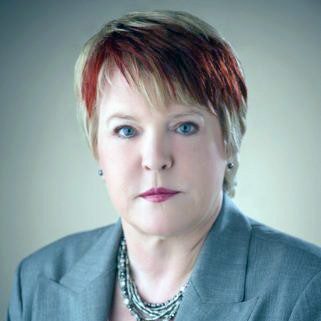Collectibles — call centers—rumored legislation… There have been many developments in Reg A and Reg crowdfunding, yet the same old challenges persist.
CrowdCheck co-founder and CEO Sara Hanks have more than three decades in securities and corporate law. The former general counsel of the Congressional Oversight Panel, and overseer of the Troubled Asset Relief Program, Hanks spent 18 months investigating TARP’s implementation and consequences.
A decade in, and we still see the same old mistakes
First, the old. Hanks sees many companies still doing it wrong. Some should not be allowed to use Regulation A because they are not complying with ongoing reporting requirements. The SEC doesn’t catch it, perhaps assuming they should be in good standing if the company did a previous raise.

“Sometimes the SEC just misses that,” Hanks said, adding one recently listed company. “And we’ve seen that a lot recently. Just because the SEC qualifies your RegA offering doesn’t mean they’ve blessed all you did before.”
Some try to shirk even the most basic of responsibilities. One recently filed a Form 1Z to exit its reporting responsibility. They are not allowed to do so until they fulfill past reporting obligations.
Why does it matter? If you conducted a RegA offering and weren’t qualified to do so, that raise is subject to rescission, meaning you have to return the funds you raised.
Collectibles are an emerging asset class
Now on to the new. A newer trend Hanks is watching is the growth of series investments in collectibles, which could be everything from sneakers and diamonds to race horses and baseball cards.
Hanks advised that investors considering collectibles as an asset class should check a few boxes before signing the check. Ensure the product exists, for starters. Check for certificates that confirm promised attributes.
Confirm where the product is located and that it is safely protected. Research, the insurance company. Then double-check everything because information can be easily manipulated.
Why the poor enforcement?
Why do some RegA and RegCF abuse go undetected? At one point, it was a lack of resources at an agency swamped with ICOs and SPACs, Hanks suggested. Also, note that these methods are a small part of the SEC’s overall responsibilities. They come with different rules, and there are few specialists.
Before RegA and RegCF, the SEC never had to contend with the early stages of the entrepreneurial lifecycle before, Hanks added. Some terrible lawyers are unfamiliar with the regulations (they often migrate from real estate). One company used a law firm whose partners were banned from practicing before the SEC.
Blockchain technology is an aid, not a cure
While blockchain technology will play a vital role in the future of capital raising, it isn’t the panacea some claim Hanks advised. Smart contracts on their own aren’t very smart, nor are they contracts. Designers still have to account for the quality of information being entered.
“There is certainly a role for routine processes,” Hanks said. “All ownership records, in the end, will end up on some form of blockchain, probably private permissioned blockchains. It’s just a super-advanced version of an Excel spreadsheet. Somebody’s still got to control it, which is the private part.
“All securities will end up on some form of blockchain and property presumably, as well, whether it’s real or virtual.”
Setting processes in stone with smart contracts is admirable, but you still need methods for addressing when the process doesn’t work. That is inevitable, she added.
Blockchain evangelicals ignore the sizeable human element that remains, Hanks said. Who’s entering the provenance information of organic bananas or ethical diamonds?
“You’ve got a serious garbage in, garbage out problem there,” Hanks said. “And how do you resolve that when it’s clear something’s going wrong?”
Call centers as a fundraising tool
Hanks said call centers could be helpful tools for companies conducting RegA raises. They help guide potential investors through the process. Perhaps they’re concerned about sharing personal information or do not understand specific terms or regulations.
She added that such centers are part of what can be a friction-free process, equating no friction to no protection. They are best deployed when a company identifies where a person leaves the process. They contact them and ask what went wrong.
There are risks. Call centers are agents of the company that hired them, so have the process as scripted as possible. Don’t rate the investment or give advice; provide a link to information that lets the investor make an informed choice. Never conduct cold calls.
Looking ahead to 2023
Hanks is watching for a few potential developments in 2023. She said that JOBS Act 4.0, currently in development, is a mixed bag. Look for Rep. Patrick McHenry to assume Maxine Waters’ role in House Financial Services. He has a wish list that includes clarifying who can act as a broker-dealer.
See also:
“In some circumstances, the call center could be deemed to be soliciting and therefore, under the SEC definition, however they are compensated, they could be deemed acting as a broker-dealer,” Hanks said. “There’s this whole range of people, including online investment platforms, who aren’t broker-dealers, whom broker-dealer rules could catch.
“It would be great to get some clarification of what it means to be in the business of a broker-dealer. That’s on McHenry’s wish list; it was also part of JOBS Act 4.0. That would be a nice, bipartisan thing.”
One area Hanks won’t touch is cryptocurrencies.
“We don’t go anywhere close,” she said. “Our view is to find out whether whatever it is you’re selling is a security. We will make sure you comply with securities laws. We’re not getting into whether you are or aren’t.”


